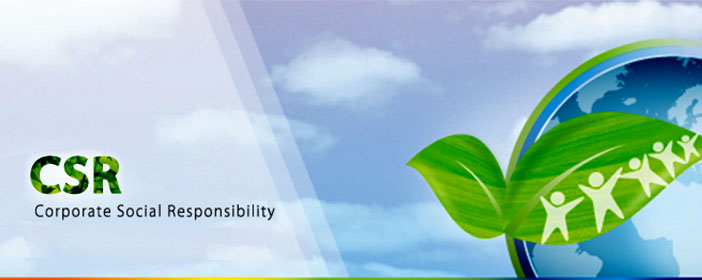With the world population estimated to be 9 billion by 2050, it is no secret that the existing pressures on our natural resources would only multiply.
What we urgently need is ‘sustainable intensification’. This means sustainability can no longer be just about the showcasing of corporate social responsibility initiatives, divorced from the corporates’ core business objectives.
There is a strong need to promote ‘sustainability’ from the generic ‘check-the-box’ approach to a strategic seat in the boardroom. Adoption of integrated sustainability efforts will help understand the interdependence of various environmental elements, and as more corporates understand the dynamics of this interdependence, sustainability considerations will increasingly become an integral part of commercial normality and business successes would include the assumption of zero negative-impact on the environment. A sustainable business strategy can help companies earn profits, save money and manage risks.
The Union government has been rooting for sustainable economic growth and ‘clean technology’ in its endeavour to pursue a low-carbon growth model. However, this is a goal that can’t be achieved without the active involvement of the corporate sector. The key to progress here is innovation that reaps both bottom-line and top-line returns, without depleting resources. Taking the green highway significantly reduces costs for businesses because of optimised use of resources, in addition to generation of additional revenues from cleaner and more efficient technologies. Besides, let us not ignore the softer benefits of building high-value relationships with suppliers and buyers who see profitability in associating with green firms. What will also help get more organisations on to this green highway is the stakeholders and the government supporting and rewarding companies that operate in the spirit of sustainability. This would require fiscal policies that promote bulk-purchase of new technologies for companies that then sell them to consumers on instalments that the latter are able to pay. This would also imply strengthening the R&D framework to help companies adopt and develop low-carbon technologies. In the current global context, two areas that offer significant opportunity to corporate for this kind of ‘act and get rewarded’ approach are energy and urban development.
Supported by government policies, the private sector has stepped up its participation and innovation, especially in the field of renewable energy with introduction of technologies like smart grids and rooftop solar, over the last few years. However, technological upgrades, especially in developing countries, are not just about producing technologies of tomorrow, but are also about adapting existing technologies to achieve higher levels of productivity to meet the Sustainable Development Goals. A case in point is the double-blast cupola technology for the small-scale foundry sector, which adapts international technology advances for use in smaller foundry units in India that use raw materials of a relatively inferior quality.
Along with technological innovation, enabling business models and outreach play important roles in creating awareness and acceptance of the paradigm shift. The procurement-and-distribution business model of LED bulbs by Energy Efficiency Services Ltd led to the price of the bulbs falling from R310 in 2014 to R38 today. Coupled with aggressive outreach, it also significantly raised consumer awareness regarding efficient lighting systems. The result? Till date, over 15 crore bulbs have been sold. The energy labelling programme of home appliances by Bureau of Energy Efficiency (BEE) is another example that created the desired market transformation. The programme also took into account the small manufacturers who did not have the know-how and resources to ensure that their products were compliant with the new regulation. The BEE business model provided them with technological and financial support. Early adopters of such a three-pronged approach will always have the early-bird advantage, which provides an opportunity for them to help shape future legislations pertaining to their operational interests.
Similarly, the urban development area also presents the challenge and opportunity of mainstreaming innovations till they become standard operating practice. One sector that sorely needs attention here is the building/construction sector, which consumes nearly 34% of the total energy produced in the country. Also, consider here the fact that two-thirds of the building stock that will exist in 2030 is yet to be built. The challenge here is not the know-how available in our country, but the will to implement it. It is here that an enabling policy environment can make maximum impact. While several green rating systems exist in the country, including GRIHA (adopted as India’s own rating system), the absence of regulatory pressure from central authorities and of incentives from local bodies makes it less lucrative for private builders to go green.
Notwithstanding the challenges in implementation of resource-efficient practices in these sectors, it is crucial for businesses to constantly measure their impact on the environment and make course-corrections when required. There is no alchemy that will transform ‘business-as-usual’ operations into climate-resilient ones. Each business must act now to become its own ‘God particle’ for sustainability in business.
This article was taken from here.

